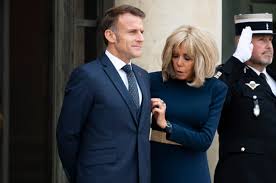Port Vila, Vanuatu — When John Warmington began diving the coral reefs of Havannah Harbor a decade ago, they were vibrant and full of life — towering coral structures, swarming fish, and intricate marine ecosystems. To him, the reef felt like an old friend. Today, it’s barely recognizable. Years of natural disasters — cyclones, starfish infestations, and a powerful earthquake — have turned it into a barren underwater graveyard.
“We come out of the water in tears,” he says. “We just see heartbreak.”
That heartbreak is being felt all over Vanuatu. The small Pacific island nation is suffering some of the worst consequences of climate change — more frequent and intense storms, rising sea levels, and saltwater contamination. Entire villages are being pushed inland, graves are being swallowed by the sea, and children are learning in tent classrooms after schools were destroyed by natural disasters.
Since 1993, sea levels around Vanuatu have risen at double the global average in some areas. Combined with earthquakes, volcanic activity, and deforestation, the damage is accelerating. In rural regions, cyclones have repeatedly wiped out critical food crops like bananas, taro, and cassava. Communities like those on Nguna Island are now trying to preserve food for emergencies — but most don’t have the resources.
In the capital and beyond, children are forced to learn in crowded, muddy tents due to damaged school buildings. “We can’t work peacefully,” said elementary teacher Noellina Tavi. “It’s too crowded, and every storm disrupts their education for a week.”
Frustrated by the lack of international action, Vanuatu has taken a bold step: turning to the International Court of Justice (ICJ), the world’s highest legal body. On Wednesday, the court is expected to issue an advisory opinion on whether countries are legally obligated to fight climate change — and what happens if they don’t.
This legal move, backed by over 130 countries, is historic. While not legally binding, the court’s opinion could shape future efforts to hold major polluters accountable and push for more global support for vulnerable nations like Vanuatu.
“We’re not asking for favors,” said Ralph Regenvanu, Vanuatu’s climate minister. “We’re asking for fairness — and for action to match the science.”
In Tuvalu, another island nation, much of the country is expected to be submerged by 2100. In Nauru, the government has begun selling passports to raise funds for potential relocation. Across the region, countries are desperate — not just for survival, but for justice.
Back in Vanuatu, local leaders like Amos Kalsont watch helplessly as the sea claims sacred ground. Graves of his family members are now just feet from the encroaching waves. “It’s not fair that we have to face the consequences when we didn’t contribute to this in the first place,” he says.
Despite the hardship, Vanuatu remains resilient. John Warmington and his wife are now replanting coral in hopes of restoring the reef they once knew. “Our friend is still here,” he says, “and life is coming back.”
At its heart, Vanuatu’s fight isn’t just about saving land or reefs — it’s about defending a way of life, a culture, and a future that climate change threatens to erase.



